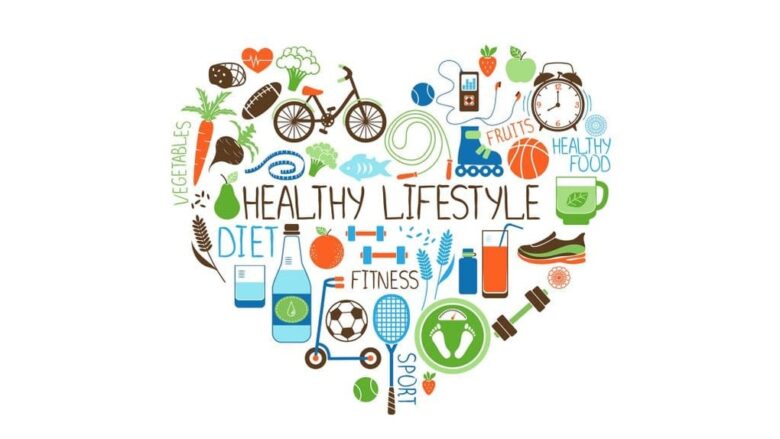From advertisements to social media, the word “wellness” is everywhere. But what does it really mean in real life? Many people think wellness means eating healthy, exercising regularly, or maintaining a consistent sleep schedule. These are all part of wellness, but daily wellness goes much further than that. It’s about creating a personal rhythm that supports your physical, mental, emotional, and even social well-being. True wellness lies in balance, not perfection. It’s about developing habits that make you feel stable, energized, and happy every day. In today’s fast-paced world, where stress is ubiquitous, redefining wellness can help you live a happier and more balanced life.
The True Meaning of Everyday Wellness:
Daily wellness isn’t about following extreme health plans or trying to keep up with trends. Instead, it focuses on simple, lasting changes that can easily be integrated into your daily life. It means choosing behaviors that align with your own needs and values, rather than imitating the lifestyles of others. True happiness lies in resting when your body needs it, eating when you’re hungry, and rejecting things that drain your energy. Small things like taking a walk, writing in a notebook, or having a deep conversation contribute to long-term well-being. Daily well-being isn’t about intensity; it’s about consistency and balance. This is a technique for living a healthy lifestyle without feeling guilty or stressed.
Physical Health Is Essential for Finding Balance:
Physical health is the most important part of health because it keeps everything functioning properly. Without adequate rest, exercise, and nutrition, your mind and emotions can easily become unbalanced. But physical health doesn’t mean getting six-pack abs or running marathons unless you truly enjoy it. Make exercise fun, whether it’s dancing, walking, or simply stretching after a long workday. Sleep is one of the most effective ways to restore yourself, although it’s often overlooked.
Regular, sufficient sleep can improve your memory, mood, and energy levels. Eating a balanced diet without labeling foods as “good” or “bad” is another way to improve your relationship with food. Physical health requires understanding what your body can and cannot do, embracing its strengths, and prioritizing self-care to maintain your long-term physical health.
For Clear Thinking, Mental, and Emotional Well-Being:
You can’t live a balanced life if your mind and emotions are unstable. This aspect of daily well-being means developing emotional strength, focus, and clear thinking. Stress, worry, and information overload are all part of modern life, so learning how to manage them in a way that maintains your mental clarity is crucial. Meditation, deep breathing, or even simply disconnecting from technology can help you relax. Emotional well-being also means being vulnerable and honest about your feelings, rather than hiding them.
Setting healthy boundaries in relationships and practicing gratitude daily can help you feel more emotionally stable. Well-being, in this sense, isn’t about not feeling bad, but about learning how to respond to negative emotions with strength and awareness. Self-compassion and the ability to take a deep breath before facing life’s challenges are the keys to true emotional balance.
The Importance of Social Well-Being and Connections:
We are wired to interact with others, and focusing on our social well-being is a vital part of our health. Having lots of friends or spending time with others doesn’t guarantee social well-being; it refers to the quality of your interactions with them. Strong relationships give you a sense of connection, reduce stress, and make you happier overall. At this level, daily well-being involves spending time with people who make you feel good, help you grow, and respect your boundaries. This can be as simple as dining with family, catching up with old friends, or having deep conversations with colleagues. Knowing when to detach from toxic people who drain your energy is also part of social balance. A healthy social circle provides emotional support, makes you happy, and ultimately helps you live a more balanced and fulfilling life.
Conclusion:
Daily well-being isn’t about striving for perfection; it’s about integrating moderate, mindful habits into your daily life that help you find balance in all aspects of your life. When your physical, mental, emotional, and social well-being are aligned, you lay a solid foundation for long-term happiness and resilience. Well-being is beautiful because it’s individual and changes as life changes. It’s not about rigid standards or what others think you should do, but about perseverance and self-awareness. By embracing the concept of “daily well-being,” you’re choosing a lifestyle that takes your individual needs into account and helps you stay healthy, in both good times and bad. True balance doesn’t happen overnight; it must be worked at daily with patience and kindness.
FAQs:
1. What is the difference between health and well-being?
Health often refers to how you feel physically, but well-being is a broader concept that encompasses mental, emotional, social, and spiritual health.
2. How can I take care of my health every day without spending a fortune?
You don’t need expensive products or programs to stay healthy. Walking, journaling, meditating, and spending time with loved ones are simple yet effective activities.
3. Why is finding a healthy balance so important?
Balance prevents burnout and helps you maintain a balance between body and mind. It creates a sense of well-being that lasts and isn’t overwhelming.
4. Is everyone’s concept of well-being unique?
Yes, well-being is individual. What works for one person might not work for another. The key is to find a method that aligns with your ideals and lifestyle.
5. How can I integrate well-being into my daily life?
Start with one or two simple habits, such as drinking more water, practicing gratitude, or taking a daily break from technology. To live a balanced life, you need to gradually develop a regular routine.




